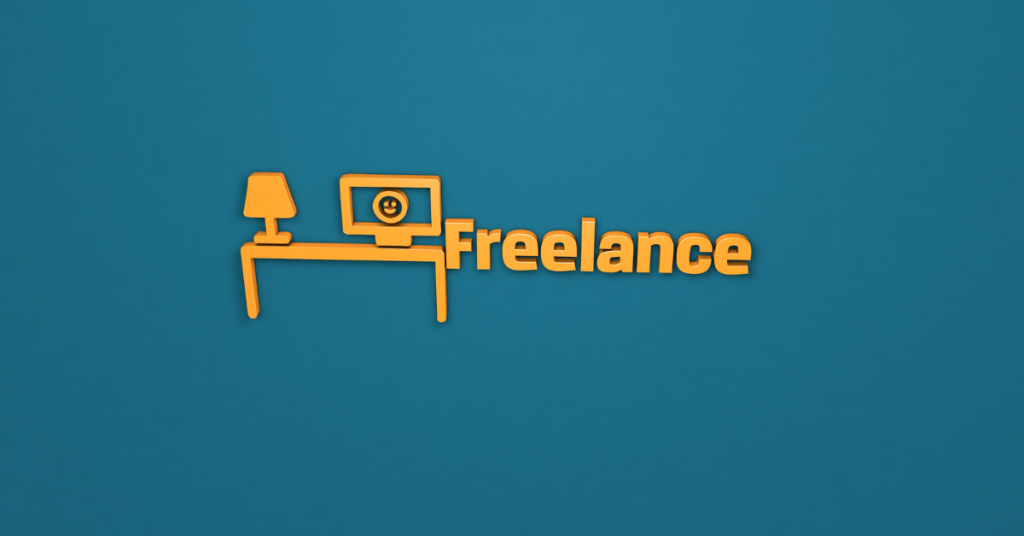Is Freelancing a Job or a Career: Why You Should Consider A Freelance Career Now
A freelancer is someone who works independently without being employed by another person or organization. This includes self-employed people, independent contractors, consultants, web designers, writers, programmers, graphic artists, videographers, photographers, musicians, etc.
The term “freelance” is often used interchangeably with “consultant”, although some people use it to describe full-time employees. In many cases, a freelancer is simply a contractor who does work for multiple clients.

What is freelancing?
Freelancing is one of the most popular forms of self employment today. While it isn’t always easy, there are many benefits to being a freelancer. You control your hours, you set your own rates, and you decide where you want to work. It’s up to you how much you make, and what type of projects you take on.
There are many different types of freelancers. Some work full time while others are independent contractors. Some freelance for themselves, while others do it for someone else. And some freelance by offering their skills to businesses. Whatever your situation, here are some tips for making the most out of your freelance career.
Freelancing vs contract work
The difference between freelance work and contract work is often misunderstood by those who do it. Freelance workers are usually self-employed while contractors are employed by an organisation.
Contractors are paid per project whilst freelancers are paid per hours worked. Contractors are typically hired directly by companies whereas freelancers are self-employed.
What kinds of jobs can I do on my own?
Freelance work is a great way to make some extra cash. You don’t necessarily need experience to become a freelancer. If you’re looking for a side hustle, here are 10 things you can start doing today.
1. Write Articles
If you enjoy writing, consider becoming a freelance writer for companies like HubSpot, Forbes, The Muse, and more. Companies are always hiring freelancers to write about products and services—and they’ll often pay a premium price per word because there aren’t many writers competing for projects. To land clients, you’ll want to build relationships over time — it could take months or even years.
2. Create Content Online
Do you love photography, art, design, music, cooking, crafting, or anything else creative? Consider selling your creations on sites like Etsy, ArtFire, Redbubble, Society6, and others. These platforms allow artists to sell their designs and crafts directly to customers. Plus, you can set your prices however much you want, or choose to charge nothing at all.
3. Transcribe Audio Files
If you speak multiple languages fluently, consider transcribing audio files into text. Sites like Upwork and Fiverr offer opportunities to transcribe recorded interviews and speeches, either one-off or long term. For example, you might record yourself giving a tutorial on how to use a certain piece of software, or you might interview someone for a podcast you plan to release later. Once you’ve delivered the final product, you’ll receive payment based on the amount of time required for transcription and delivery.
How do I go freelance?
There’s no set path into freelancing, but to succeed in it you’ll need the motivation, enthusiasm and determination for your work. If you’re thinking about becoming a freelancer, here are some tips on how to make the transition from employee to entrepreneur:
1. Start small
‘Freelancers often start off working part-time because they don’t want to commit to full-time hours,’ says Sarah Jackson, founder of Freelance Academy. Before you decide to become a freelancer, it makes sense to test the waters by taking on smaller projects. You might find that you enjoy the freedom and flexibility of being able to choose your own hours and working environment.
2. Build up your skillset
You’ll need to develop both soft and hard skills to be successful as a freelancer. Soft skills include communication, negotiation, problem solving and project management; while hard skills include technical knowledge and marketing savvy. To help you develop these skills, consider joining local networking groups, attending courses and reading books and guides.
3. Find clients
Once you’ve built up a portfolio of work, it’s time to start looking for clients. Use online platforms such as Upwork and Fiverr to advertise yourself as a freelancer. Alternatively, you could look for opportunities within your current organisation. For example, many businesses offer mentoring programmes where employees can learn new skills.
How much can I charge?
If you’re thinking about starting a freelance business, it’s important to know how much you can charge. But don’t just look at yourself – ask around. There are plenty of freelancers who’ve been doing this for decades and have built up a good reputation over time. You’ll learn a lot by talking to them and getting feedback.
You might even consider asking your friends, family members, colleagues and clients for advice. They probably already have some idea of what you could earn, so you can use their input to help set your expectations.
The most common way to determine what you can charge is to calculate your hourly rate. This is the amount you’d normally charge per hour of work. If you’re working fulltime, multiply your weekly income by 52 weeks a year. Then divide that number by 60 minutes in an hour.
But there’s one problem with this method. Many freelancers say they choose to do projects because they enjoy being creative, solving problems and helping people. However, many businesses offer low rates simply because they don’t pay well. So if you decide to start a business, you’ll likely be competing against companies that offer lower prices. In fact, you might end up earning less money than you did at your day job.
So how can you avoid falling into this trap? Start by taking a closer look at your skills and experience. Do you have a special talent or skill that no one else seems to possess? Is there something unique about your approach that makes you stand out among your peers? These things matter a great deal when determining whether you can charge a high rate or not.
Next, figure out how much you actually spend on running your business. How much does it cost to rent office space, buy equipment, maintain your computer system, etc.? What about marketing expenses like advertising, printing flyers, sending emails, hosting webinars, etc.? Once you know exactly how much you spend each month, you can compare those numbers to your earnings.
Finally, once you’ve determined your hourly rate, you can add in additional costs such as taxes, insurance, health benefits, retirement plans, vacation days, sick days, etc. When you total everything together, you’ll arrive at a final number that represents what you can reasonably charge for your services.
Where can I find work as a freelancer?
There are many ways to find work online, but it depends what type of job you want. If you’re looking for something specific, check out the following options:
Upwork – This site connects businesses with people who offer their skills. You can use it to find a virtual assistant, web designer, writer, developer or anything else.
Freelancer – This site allows you to post jobs and bid on projects. Jobs range from writing to graphic design to programming.
Guru – This site connects skilled professionals with clients. They provide a wide array of services, such as marketing, accounting, legal advice and customer support.
Fiverr – This site lets you sell things for 5 Euro. Some sellers offer custom designs or even do entire projects.
Odesk – This site helps connect employers with workers. Employers list open positions and workers apply directly via email.
LinkedIn – This site is great for connecting with potential employers. Use it to build relationships with companies and make yourself look good.
Frequently Asked Questions
What is required for me to become a freelancer?
Freelancing is one of those jobs that seems like it could be perfect for anyone. You set your own hours, choose what projects you want to take on, and even decide how much money you make each week. But while there are plenty of benefits to working independently, it’s important to remember that freelancing isn’t always easy. In fact, according to a recent survey by Upwork, nearly half of respondents had found themselves struggling financially over the course of their career. So if you’re thinking about making the leap into freelance life, here’s everything you need to know.
How to find clients as a freelancer
As a freelancer, finding your first client isn’t always easy. You’ll want to start off small and build up your portfolio over time. There are plenty of ways to go about this, including advertising online, attending events, cold calling potential leads, and approaching people you already know.






